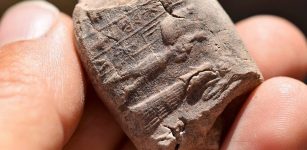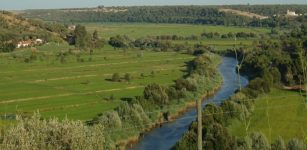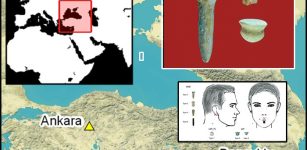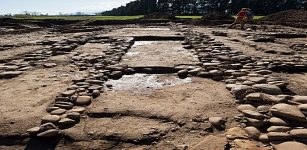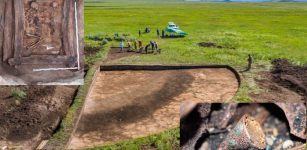Rare Roman Brooch And A Miniature Sword – Unearthed
AncientPages.com - Archaeologists at a major project to upgrade the A1 to a motorway in North Yorkshire have uncovered several significant discoveries.
The discoveries include a rare Roman brooch from Eastern Europe and a miniature sword.
An archaeological team of around 60 people have been working along the A1 between Leeming Bar and Barton for 2 years as part of a Highways England scheme to install an extra lane in each direction and improve the route to motorway standards.
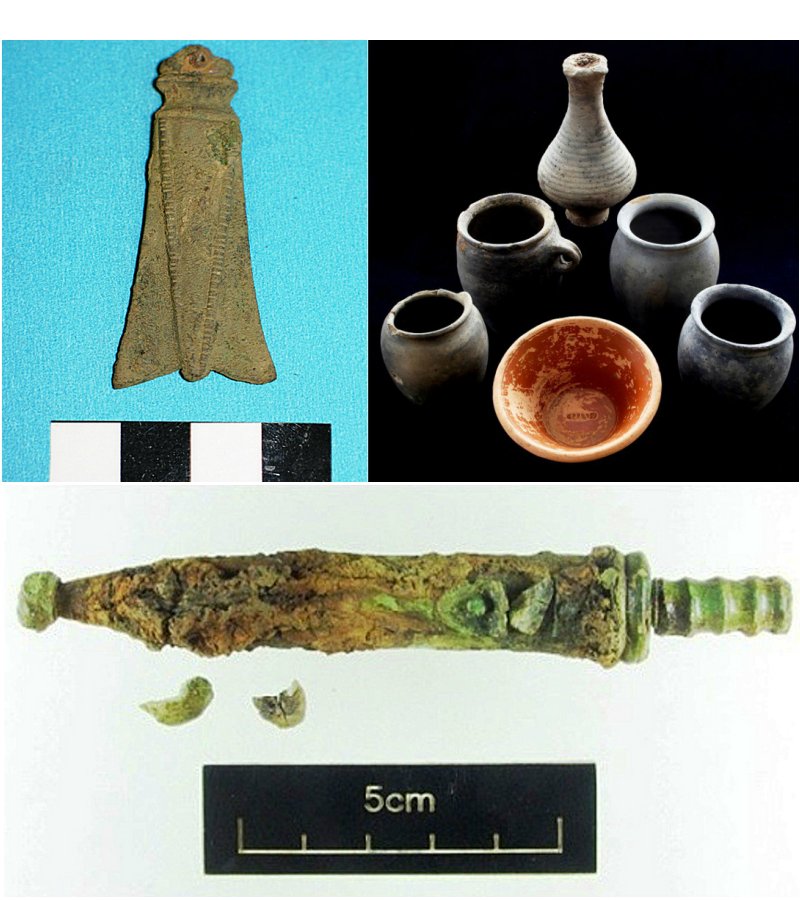
Another extremely rare find is a miniature sword, complete with iron blade, copper alloy scabbard and bone handle recovered during excavations at Scotch Corner – thought to an offering for the gods or a small pocket knife. Ceramic pots and personal possessions have also been found alongside human remains at a Roman cemetery at Bainesse, which are thought to have been gifts for the dead. Credits: Gov.uk
During that time, archaeologists have uncovered more than 177,000 artefacts and sieved more than 50 tonnes of sediment samples. They have found numerous artefacts dating between the Middle Stone age, Iron Age and Roman period. Among artifacts, there are such items as a Roman cicada brooch made in Pannonia – a region that today includes parts of Hungary, Austria, Slovenia, Croatia and Serbia, a miniature sword, complete with iron blade, copper alloy scabbard and bone handle recovered during excavations at Scotch Corner – thought to an offering for the gods or a small pocket knife.
Ceramic pots and personal possessions have also been found alongside human remains at a Roman cemetery at Bainesse, which are thought to have been gifts for the dead.
"The quality and preservation of the artefacts and environmental remains from this scheme is outstanding. We are learning so many new things about the people who were living in the vicinity of the A1 in the past," Dr Hannah Russ, from Northern Archaeological Associates, said.
"It is fascinating to discover that nearly 2,000 years ago the Romans were utilising the A1 route as a major road of strategic importance and using the very latest technological innovations from that period. We are doing the same thing today – using the latest technology to improve this important route and significantly reduce journey times," Highways England Project Manager, Tom Howard, said.
AncientPages.com
source: Gov.UK









